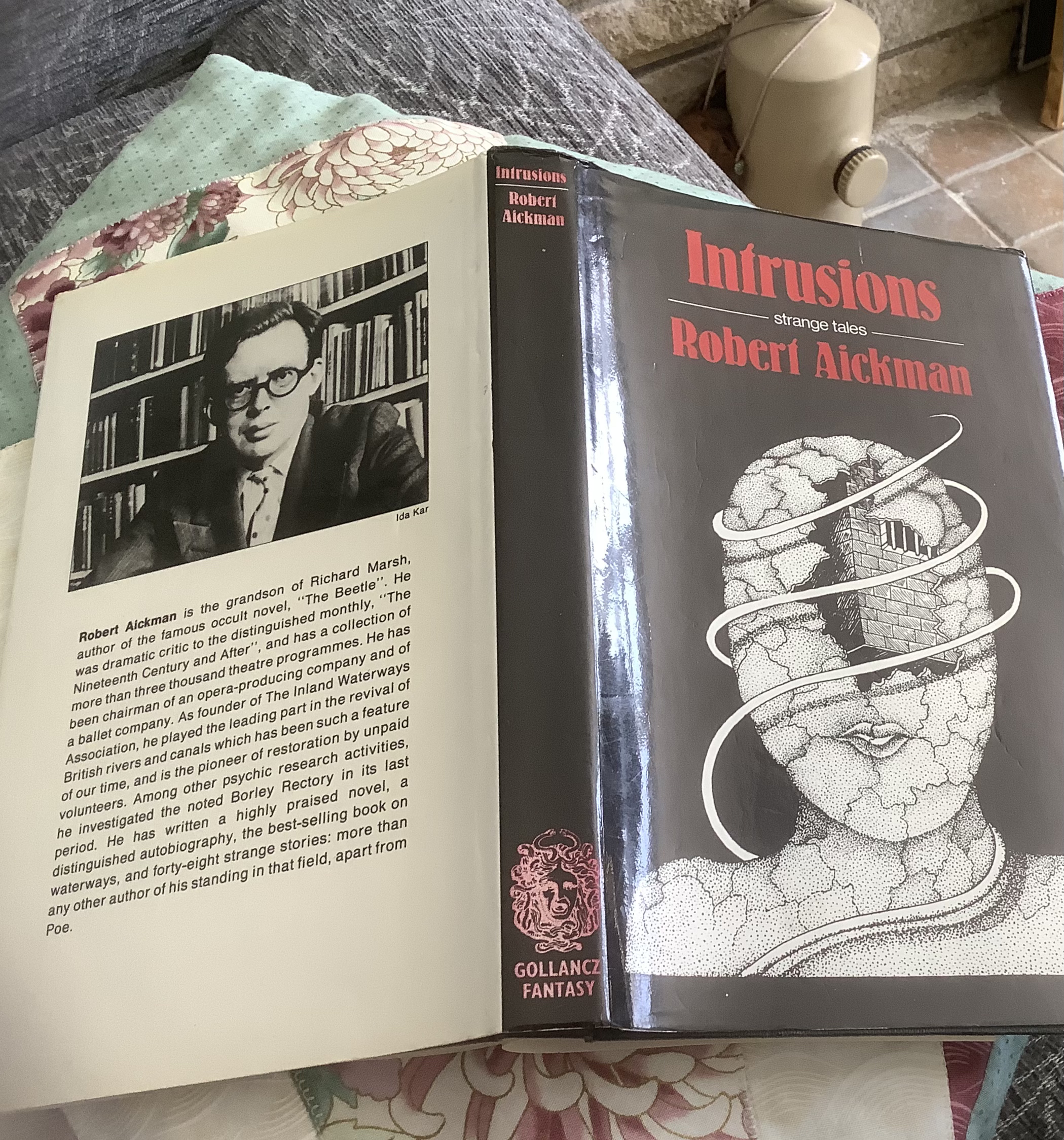
THE FETCH by Robert Aickman
“Her lips were like dark rose petals, as one imagines them, or sometimes dreams of them.”
…being the polypetalous lips of one of Brodick’s women, a different woman in his life later, as women often do, ‘materializing in one’s rose garden.’ Most of us have already been fetched by the Aickwoman in this work at least once and if you are reading this review have successfully resisted it, but now it has happened to me for a second time, although I have for years blocked this work so as to prevent future approaches by the one who fetches. The one who needs to be let in so as to fulfil its fetching. On one occasion, leaving a trail of residue that “reeked of seabed mortality […] slimy-sleek head, always faceless…” Brodick Leith is our diversionary magnet or decoy here, the son of a Scottish judge, a father who terrified him, and Brodick eventually inherits a hard-to-reach house in the Scottish wilds with a so-called tower, and antlers and ‘death pictures’ on its walls, “stags exaggeratedly virile”, and “Dust was settling everywhere, even in that remote spot” — “the most burdensome and most futile of houses, so futile as to be sinister…” Brodick who, as a small boy, was in an implied relationship with the soft-body of his mother whom he loved. And his mother’s fetch one day fetched her, the fetch having arrived along what I myself recall, in my own life, as a dark landing of some large house where I lived at the time, such unknown figures often appearing there, whether dream or not. Brodick becomes a banker not the ‘weaver of dreams’ he wanted to be. He had a series of women, often seeking one to give him a child, women whom we believe in, because of the various quirks of their relationships with him, including a small black girl, a “rococo cherub”, called Aline (“her mouth full of prunes”), all of these women arguably fraught and then fetched or fetchable, eventually Brodick himself being fetched or is, even now, still fetchable in that most futile of all houses, if this work is to be fully believed. A work that attritionally progresses with a rambling, but nicely styled, narration of patient restraint. Most women are fetching in their own different ways, I guess, and in the shades of different meanings of the word ‘fetching’ itself. Don’t think Aickman, however, used the word ‘fetch’ even once in this work, except in the title, otherwise detachable from the story itself! One of Brodick’s women wrote a secret book, but is his later revelation of its contents true or a diversionary tactic? The parallel lift shafts, unlike Selfridges’ lifts, without women attendants to work them from inside, in a block of flats where he lives with one of his women. Oh to be as writerly as Sir Walter Scott, then we would have no doubts as to the meaning of this work. On the other hand, perhaps best never to be certain. Eugene O’Neill and Sartre’s Huis Clos, notwithstanding.
“Men chase the same women again and again; or rather the same illusion; or rather the same lost part of themselves.”
All my reviews of Aickman: https://dflewisreviews.wordpress.com/robert-aickman/
My subsequent reading and reviewing of TIME IS NOT PASSING is below, a story that immediately precedes THE FETCH in ‘Intrusions’.
======
NO TIME IS PASSING by Robert Aickman
“One does not turn aside from angels in order to count dustbins.”
That sense of time stopping and then starting again, whatever the constraints of Zeno’s Paradox. A remarkable opening you will not forget (of a man unexpectedly finding a river or creek at the bottom of his garden and sailing its ‘saline and sullen’ waters in a shallop or dory) but a gradual denouement that you probably will forget, as I have just done, forgotten too quickly even for a real-time review.
“Busy people have no time for twilight,” nor for endings.
A text I somehow recall as full of semi-colons. And prunes like those of Aline.

No comments:
Post a Comment